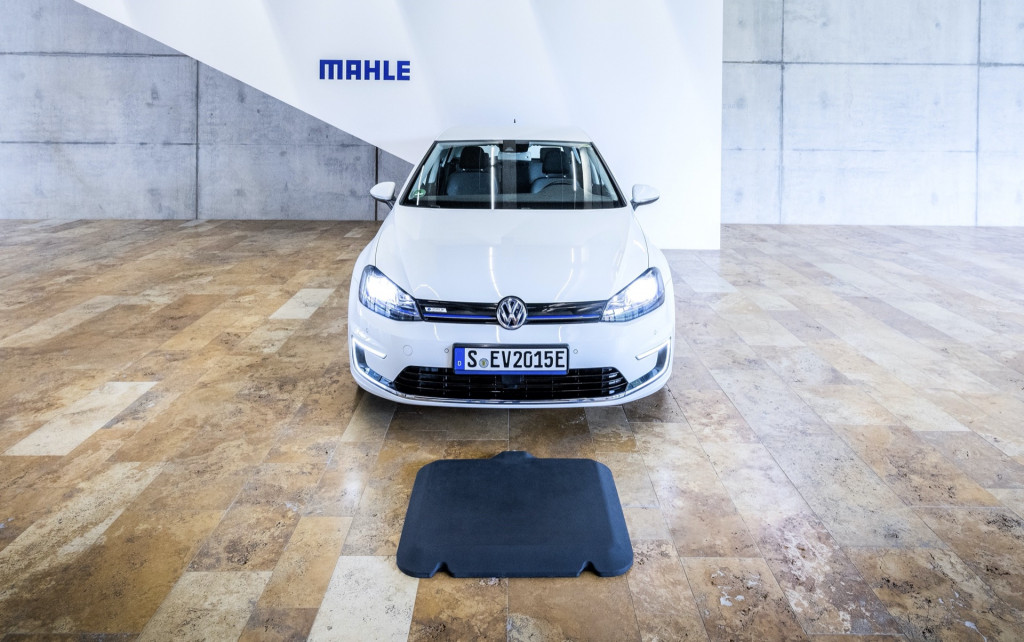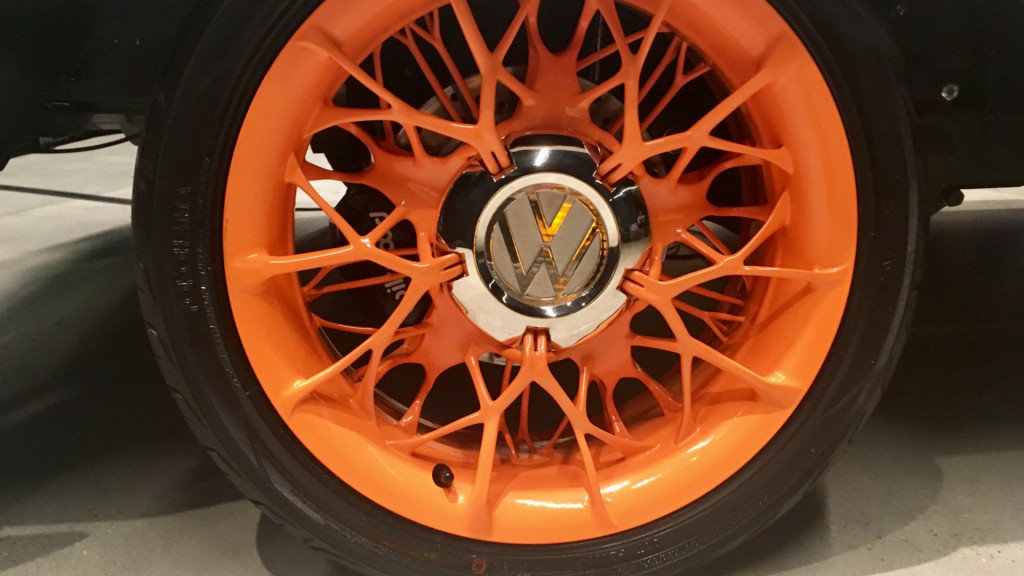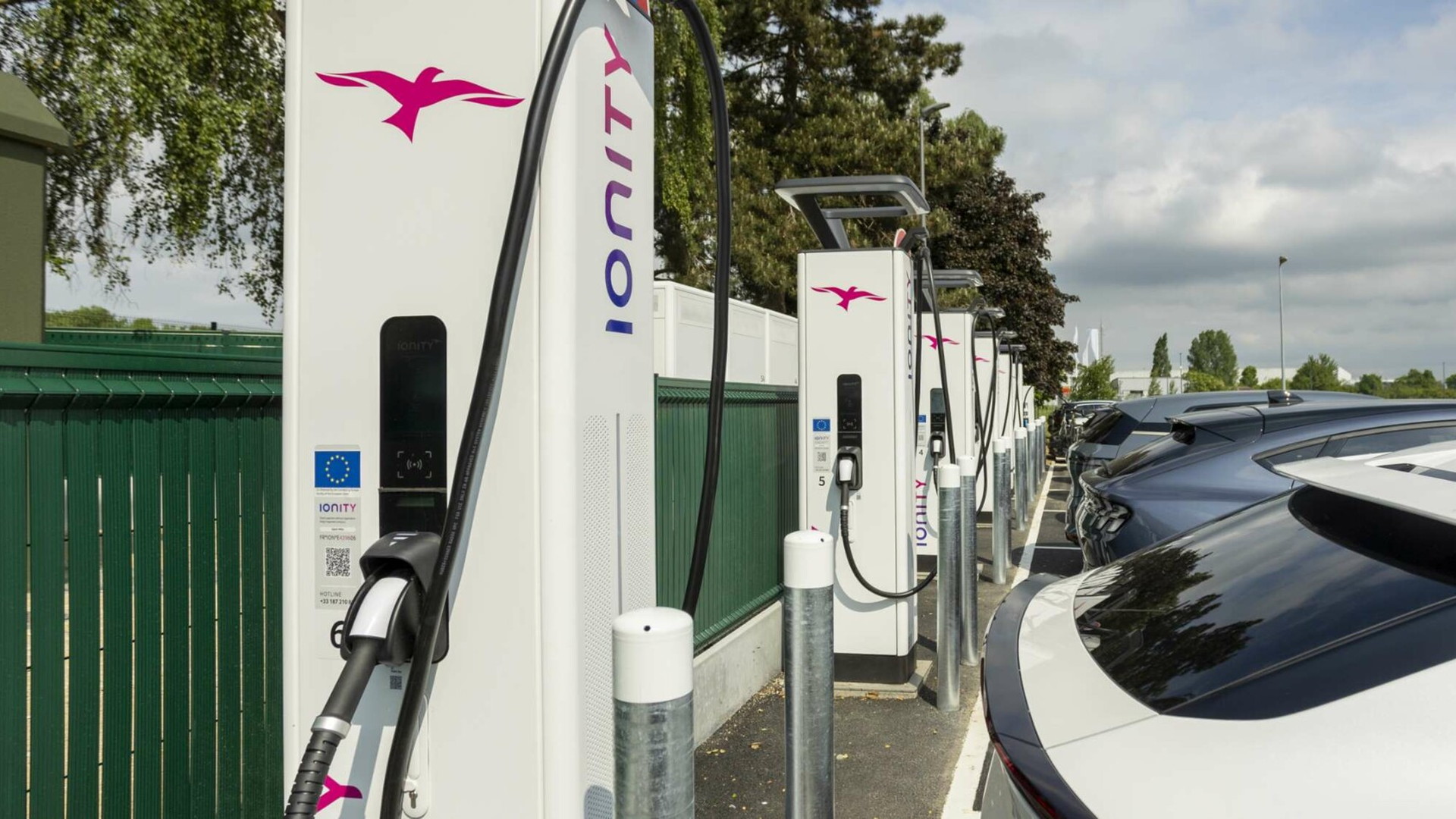Volkswagen on Tuesday confirmed that it’s working on wireless electric car charging in its own patented coil and charging pad design with silicon-carbide materials, aimed partly toward daily garage use.
The project goes well beyond that, though—into charge rates that are currently on the speedy side of DC fast-charging territory.
According to Volkswagen, their original attempt was in the form of an early 6.6-kw prototype, which would perform at charge rates comparable to home Level 2 (240-volt) systems. But in early trials in conjunction with a silicon carbide inverter, the system has performed up to 120 kw with a prototype unit. VW has a future goal of upping the system to 300 kw.

Mahle wireless charging
So far, the commercialization of wireless charging has mostly looked toward home use. There are only a few high-power systems in use or development, and most of them are targeted toward use on larger commercial vehicles. One exception is a wireless charging taxi test in Norway from Momentum Dynamics (InductEV).
The U.S. development of this Volkswagen system is being done at VW’s Knoxville Innovation Hub, in conjunction with Oak Ridge National Lab (ORNL) and the University of Tennessee (UT). It takes advantage of the two academic institutions’ expertise with high-power wireless charging and power-electronics optimization, respectively.
In addition to the tease of future hands-free charging tech for its vehicles, VW boasted that materials work being done in conjunction with UT might help boost the driving range of future EVs. VW suggests it may be able to create a frame for EV battery packs that cuts weight by 60%, with the use of a 3D-printed resin-based structure. The material can offer durability and energy absorption beyond that of steel, according to VW.

VW wireless charging tech
VW also showed the possibility of using paper-based products (hot-pressed cellulose fiber reinforced thermoplastics) to replace plastics in some vehicle areas. Further, it revealed U.S.-based research with lightweight materials that might be put to use in “pickup beds and rugged components” for future products. In a process called “sizing,” it’s working to optimize the fiber-matrix-interface in sheet molding compound (SMC) processes for better durability. It kicked off that project by producing a lightweight version of a VW Atlas tailgate that saved 13 pounds (35%) versus metal.

VW Type 20 Microbus Concept wheel made with generative design
This kind of dedicated design approach to weight savings is interrelated with the AI-based generative design approach that VW has dabbled with in U.S.-based concepts and research in the recent past—including its Type 20 Microbus Concept that the company’s U.S. arm developed while the ID.Buzz electric van was taking form in Germany.
Just as many of these advanced materials start with premium vehicles and supercars, don't necessarily expect any of this tech—wireless charging included—to debut in VW's most affordable EVs. But VW mentioned that these U.S. researchers work with all Volkswagen Group brands, including Audi, Bentley, Lamborghini, Porsche, and VW, and the wireless charging especially may prove a great fit for an EV with enough padding built into the price tag sometime soon.













